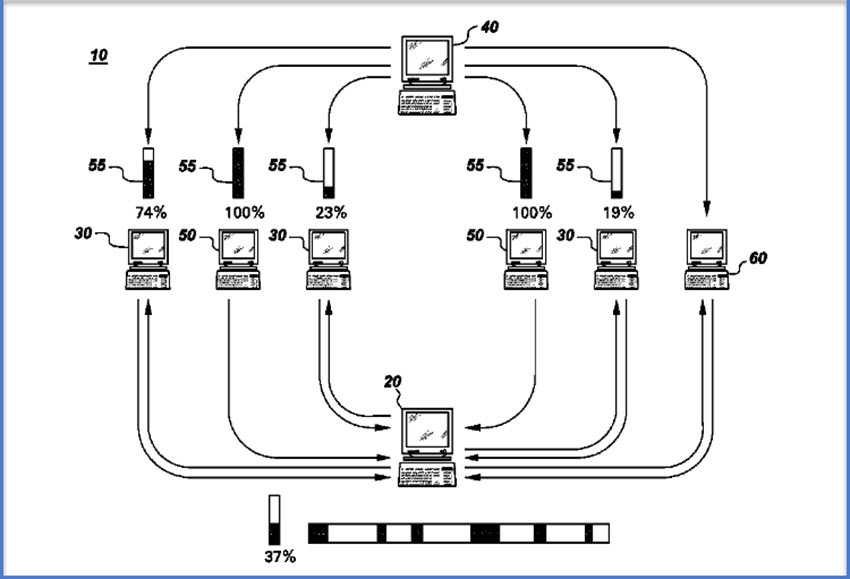In an effort to limit copyright piracy, NBC Universal has registered a Diploma of Patent a new technique that can detect files that are shared through peer-to-peer in real time.
The idea is that the system, which could be developed by a service provider Internet, θα είναι σε θέση να εντοπίσει τέτοια αρχεία, όπως μια ταινία ή άλμπουμ μουσικής που διανέμονται σε ένα δίκτυο (όπως το BitTorrent). Όταν υπάρχουν αρκετοί χρήστες μαζεμένοι που ασχολούνται με την κοινή χρήση επαλήθευσης ενός αρχείου, αυτό θα μπορούσε να σημάνει ένα είδους συναγερμού, για ληφθούν κατάλληλα μέτρα, όπως μια προειδοποίηση από τον ISP ή την κατάθεση κάποιας μήνυσης.
It is worth noting that the patent was filed with 2009, and the methods described may not be suitable for successful verification of files if the digital fingerprints have disappeared from experienced pirates.
Additionally, it includes a false hint to ISPs on how to use them data collected by peer file-sharing services to limit or block this type of traffic, at low cost modes.
It is unclear whether NBC Universal plans to implement its idea, or whether it is worth it. TorrentFreak reports that the parent company of the Comcast group has experienced serious reactions when it tried to stop BitNext from running 2007.
This, of course, the NBC Universal patent is unable to cope with are the reasons why people share the files illegally.
The availability and affordability of digital content is certainly on the rise, but if piracy continues to exist, it shows that something is wrong with today's content distribution model. And that's what companies need to think about and try to fix.





